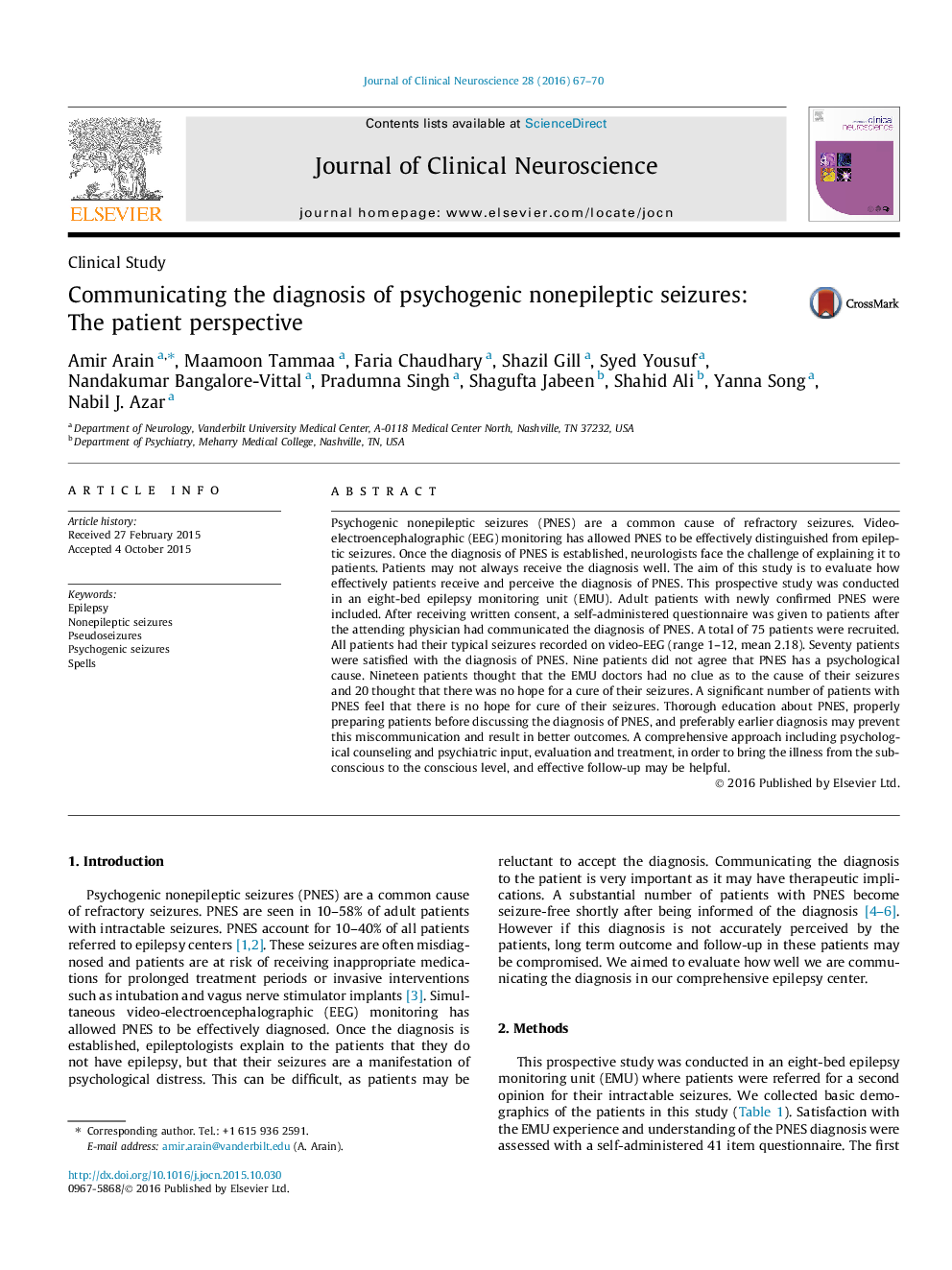| کد مقاله | کد نشریه | سال انتشار | مقاله انگلیسی | نسخه تمام متن |
|---|---|---|---|---|
| 3058349 | 1580288 | 2016 | 4 صفحه PDF | دانلود رایگان |
• Communication of diagnosis of PNES is difficult.
• Many patients perceive that doctors don’t understand their illness.
• Many patients feel PNES means being crazy.
• Many patients feel no hope for cure of their seizures.
Psychogenic nonepileptic seizures (PNES) are a common cause of refractory seizures. Video-electroencephalographic (EEG) monitoring has allowed PNES to be effectively distinguished from epileptic seizures. Once the diagnosis of PNES is established, neurologists face the challenge of explaining it to patients. Patients may not always receive the diagnosis well. The aim of this study is to evaluate how effectively patients receive and perceive the diagnosis of PNES. This prospective study was conducted in an eight-bed epilepsy monitoring unit (EMU). Adult patients with newly confirmed PNES were included. After receiving written consent, a self-administered questionnaire was given to patients after the attending physician had communicated the diagnosis of PNES. A total of 75 patients were recruited. All patients had their typical seizures recorded on video-EEG (range 1–12, mean 2.18). Seventy patients were satisfied with the diagnosis of PNES. Nine patients did not agree that PNES has a psychological cause. Nineteen patients thought that the EMU doctors had no clue as to the cause of their seizures and 20 thought that there was no hope for a cure of their seizures. A significant number of patients with PNES feel that there is no hope for cure of their seizures. Thorough education about PNES, properly preparing patients before discussing the diagnosis of PNES, and preferably earlier diagnosis may prevent this miscommunication and result in better outcomes. A comprehensive approach including psychological counseling and psychiatric input, evaluation and treatment, in order to bring the illness from the subconscious to the conscious level, and effective follow-up may be helpful.
Journal: Journal of Clinical Neuroscience - Volume 28, June 2016, Pages 67–70
